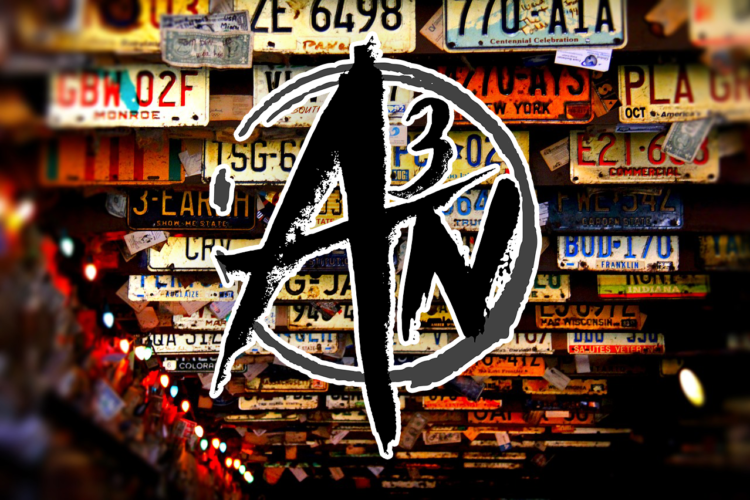
An Effective Replacement for State Licensing
“Occupational licensing directly affects nearly 30 percent of U.S. workers today and continues to grow in density and scope.”(Thornton 2015)This figure ought to scare all liberty-minded people, as well as those simply concerned with safety and quality. Licensing does nothing to guarantee safety or quality. In practice, licensing does quite the opposite. Licensing acts as a participation trophy, granting special privileges to anyone who plays the state’s game, while keeping others who may be perfectly qualified from participating and providing good competition.
In a rare turn of events, the Texas legislature has abolished all state level plumbing laws, including the licensing requirement. Because the laws creating the plumbing board and its requirements have an automatic sunset clause, when the legislature failed to act to renew the board, the board itself and all of its statewide regulations were set to expire later this summer. This has resulted in plumbers and plumbers’ unions raising the cry of “chaos” and “danger to the public,” though they have nothing upon which to base these self-serving claims. They bemoan the dangers of unqualified workers and shoddy work, ironically pointing to those very problems under the current system which is their suggested solution.
But if, as they say, there is already a problem with plumbers who are not honest or qualified, despite the state requirements, are these licenses and regulations really solutions at all? What problems do these licenses actually solve?
I’ve worked in the trades for almost 30 years, and in that time, I have seen exactly what you would expect to see. Some plumbers are great, some are worthless, and most fall somewhere between these extremes. All of these were licensed plumbers, which goes to show that licensing does not guarantee high quality. Why should it? Obtaining a plumbing license is akin to a short sprint race but instead of one winner, everyone gets a participation trophy. Each plumber trains for that one event, run the one race, and if they finish, regardless of how well they finish, they are awarded the license. The consumer does not know if the plumber finished in first or last place.
In some cases, the licensed plumber may be expected to keep up on current regulations, which differ from location to location and are not the same across the state. Even here, there is no real penalty if you don’t keep up with those changes. An inspector may require a change, so the plumber is called back, which often will mean another opportunity to charge for additional plumbing work.
Licensing requirements offer as much as any other law. We are promised Utopian outcomes by those who claim we need them, but as those proponents have already admitted, fail to provide those desired outcomes. So what do licenses actually tell the consumer?
Does the possession of a license tell you whether the person will be on time?
Will it tell you whether they are clean and polite?
Will it tell you that they have a track record of quality work and satisfied customers?
Will it tell you if they are reasonably priced and trustworthy?
Can it even tell you if they are qualified to do the particular work you need done?
The answer to each of these is “Of course not.” A license, much like any official certification, merely says that you paid, showed up, and pleased the bureaucrat in charge. That is the extent of knowledge you gain from seeing a tradesman’s license. It tells you that they appeared for the training, and perhaps tested on it, but it cannot tell you that the person is competent. Licensing does not and cannot deliver on the promises of its proponents.
While there may be nothing that can guarantee great quality work, a rating system such as that we see with eBay.com or Yelp.com, gives the consumers far more information than state licensing or union certification can. Furthermore, review and reputation sites, including HomeAdvisor.com and AngiesList.com target the trades specifically, so that consumers can easily research tradesmen for whatever work they may need at the time. When you visit such review sites, you are crowd sourcing information on a individual, rather than relying upon the word of a tired and uncaring bureaucrat who granted a license. Since granting the license is a one-time event, the word of that bureaucrat is going to be out of date. Sites such as these can answer all the questions that licensing fails to answer. The bottom line is that these sites do what licensing is said to do and more.
We cannot stress too much that consumers are not the ones calling for more regulation. Many consumers know that a plumbing license is no guarantee of quality work, or even honesty. Instead the cries of doom and gloom are all coming from unions and those already licensed. The unions are claiming that now, in the absence of licensing, “criminals” and unqualified persons can call themselves plumbers. They complain that the safety of hospitals and schools will be in jeopardy, in turn putting the weakest of society in danger. We are told that the solution, the only solution that they can imagine, is state protectionism of unions and licenses.
Unfortunately, as with other laws and regulations, licensing is not so easily removed. Governor Abbot of Texas has mandated that the plumbing board continue to function as it has, effectively side stepping the legislative sunset clause. The freedom we foresaw at the end of a short tunnel was illusory. Licensing will remain as mandatory as it is unreliable. Governor Abbott may well have given in to the scare tactics of the unions and fans of state interference, though another motivating factor could be the fact that the Texas State Board of Plumbing Examiners generated $5.2 million in revenue for the government in 2017.
Hope remains, however, as we are seeing other states abolishing some licensing, such as that of funeral directors in Colorado, and hairstylists in several states. Sadly, such cases are rare, with less than one bill being introduced in any given state in a given year or legislative session. States and those who are already licensed have vested interests in maintaining the current protectionist system. With the rise in reputation sites and review sites, I believe we are seeing a chink in the armor. We the people are demonstrating that there is no need for licensing, and that not only are there alternatives, those alternatives are more timely, more informative, more reliable, and far more accessible to consumers.
Works Cited
Robert J. Thornton and Edward J. Timmons, “The de-licensing of occupations in the United States,”Monthly Labor Review, U.S. Bureau of Labor Statistics, May 2015, https://doi.org/10.21916/mlr.2015.13.







